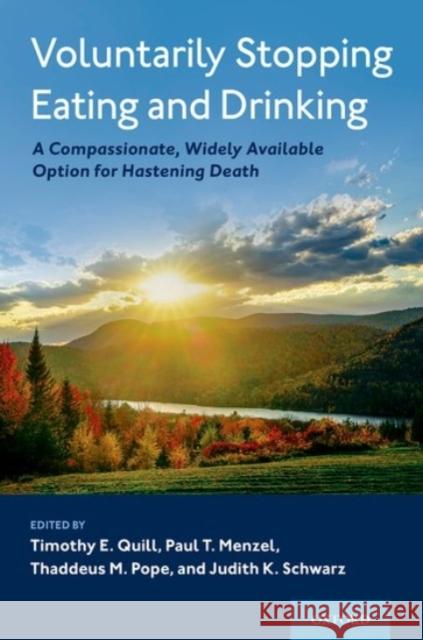Voluntarily Stopping Eating and Drinking: A Compassionate, Widely-Available Option for Hastening Death » książka
topmenu
Voluntarily Stopping Eating and Drinking: A Compassionate, Widely-Available Option for Hastening Death
ISBN-13: 9780190080730 / Angielski / Twarda / 2021 / 312 str.
Voluntarily Stopping Eating and Drinking: A Compassionate, Widely-Available Option for Hastening Death
ISBN-13: 9780190080730 / Angielski / Twarda / 2021 / 312 str.
cena 247,09
(netto: 235,32 VAT: 5%)
Najniższa cena z 30 dni: 221,00
(netto: 235,32 VAT: 5%)
Najniższa cena z 30 dni: 221,00
Termin realizacji zamówienia:
ok. 16-18 dni roboczych.
ok. 16-18 dni roboczych.
Darmowa dostawa!
Kategorie BISAC:
Wydawca:
Oxford University Press, USA
Język:
Angielski
ISBN-13:
9780190080730
Rok wydania:
2021
Ilość stron:
312
Oprawa:
Twarda
Wolumenów:
01
Dodatkowe informacje:
Bibliografia
Glosariusz/słownik
Glosariusz/słownik











